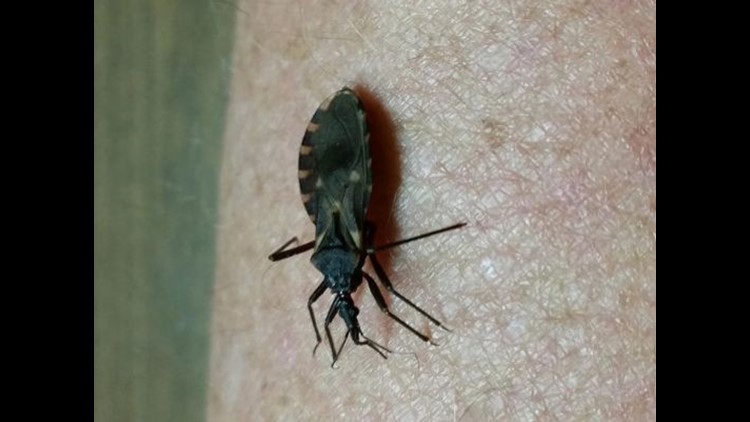A deadly insect known as the "kissing bug" has been reported in Georgia, according to the Centers for Disease Control and Prevention. Triatomine bugs can carry a parasite that causes Chagas disease.
These bugs are typically found in the southern United States, Mexico, Central America and South America. It's not clear which part of Georgia the insect was found.
Doctors say the kissing bug is a silent killer. Dr. Anil Mangla, the Assistant Director for the San Antonio Metropolitan Health District, said symptoms often include pain in the gut or swelling where the bug bit the person. He also said a person can go as long as 20 years before the parasite takes its toll.
PHOTOS: Deadly "kissing" bug
Earlier this year, the Wellcome Trust awarded more than $5 million to University of Georgia researcher Rick Tarleton to help develop a new treatment for Chagas disease, according to UGA's Center for Tropical and Emerging Global Diseases. According to CTEGD, Chagas disease kills more people in Latin America than any other parasitic disease.
The CDC says these bugs can live in cracks and holes indoors and in outdoor spaces including:
- beneath porches
- Between rocky structures
- Under cement
- In rock, wood, brush piles, or beneath bark
- In rodent nests or animal burrows
- In outdoor dog houses or kennels
- In chicken coops or houses
To keep these bugs away from you home, the CDC suggests:
- Sealing cracks and gaps around windows, walls, roofs, and doors
- Removing wood, brush, and rock piles near your house
- Using screens on doors and windows and repairing any holes or tears
- If possible, making sure yard lights are not close to your house (lights can attract the bugs)
- Sealing holes and cracks leading to the attic, crawl spaces below the house, and to the outside
- Having pets sleep indoors, especially at night
- Keeping your house and any outdoor pet resting areas clean, in addition to periodically checking both areas for the presence of bugs
If you think you've found a triatomine bug, the CDC suggests:
Please do not touch or squash the bug. Place a container on top of the bug, slide the bug inside, and fill it with rubbing alcohol or, if not available, freeze the bug in the container. Then, you may take it to your local extension service, health department, or a university laboratory for species identification. In the event that none of these resources is available in your area, you may contact CDC's Division of Parasitic Diseases and Malaria (parasites@cdc.gov) for species identification or T. cruzi testing.
Things you might find crawling around:
PHOTOS: Central Georgia snakes



